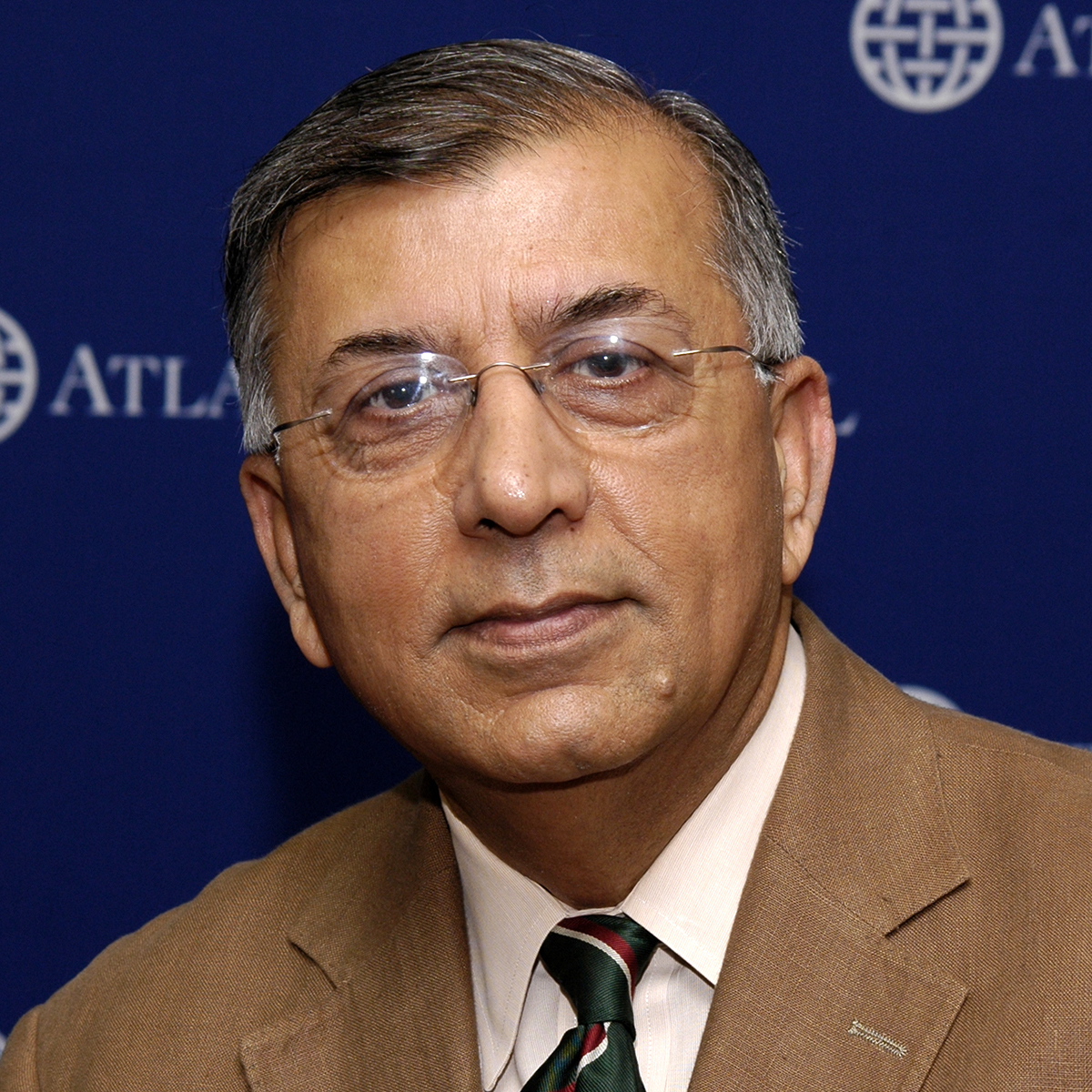
Shuja Nawaz, director of the Atlantic Council’s South Asia Center, appeared on a broadcast of the CNN Newsroom on August 22 to discuss the upheaval, natural and political, caused by the flooding in Pakistan. The following is a transcript of Nawaz’s segment.
DON LEMON, CNN ANCHOR: Well, hundreds of thousands of Pakistanis are still fleeing rising floodwaters, many more are fighting disease. Nearly 1 million people are sick with diarrhea, the skin disease scabies, malaria or respiratory infections. That’s from the World Health Organization, all of that information.
Floodwaters cover one-fifth of the country and has disrupted the lives of 20 million Pakistanis. More than 1,500 people have died. Money to help, however, has been slow to arrive, especially when compared to how Americans have given to catastrophes of similar proportions.
Why? Could there be a bias against the country? Fear of what the funds could ultimately support?
Pakistan native Shuja Nawaz joins us now from Washington, D.C. He’s a director of the South Asia Center at the Atlantic Council of the United States. It’s a bipartisan public policy group.
Mr. Nawaz, thank you for joining us.
I want to be sure you know there have been terrorist leaders found in Pakistan. So, the question that some may be asking here is: how do I know my contribution won’t end up working for an anti-American cause?
SHUJA NAWAZ, ATLANTIC COUNCIL: I think this is really the big test for the government of Pakistan and I think they are up to it because there’s a commitment to have a very transparent and a very effective mechanism for the aid, particularly from the United States. And the ground for this was laid by the Kerry-Lugar bill legislation because the United States Congress insisted that this aid be given directly to the government and that it be monitored and audited.
LEMON: So, we’re seeing reports that the Taliban is helping with the floods. It could just be militants. I don’t know if you know more about that — but they are helping the flood victims where the government is not. Could this worsen the relationship the United States has with Pakistan?
NAWAZ: Well, just to be correct, it is not the Taliban per se, but it is their affiliates perhaps in the northwest of the country, and a lot of the groups are the Punjabi militant groups that are from the heartland that have repositioned their people for evangelical purposes and they have social services groups that quickly come into action.
Unfortunately, when the flood hit, the government was asleep at the wheel and it took quite a while for the government to get its act together. That is the gap that these people filled, but it’s not a nationwide problem and it has not yet become a nationwide problem, although it could.
LEMON: OK. So, listen, I know the United States has promised $150 million in aid to help Pakistani flood victims and, you know, the U.S. aid, all of that’s written right on, we’re told, the aid and many people — so the people there know where it’s coming from.
Do you think that this will help the relationship between Pakistan and the United States? And if so, how do we get that message across? NAWAZ: Oh, absolutely. I think it’s not just the $150 million, another $200 million or $250 million out of the Kerry/Lugar money is probably going to be directed for flood relief work, too. And there could over time, perhaps, a front loading of some of the Kerry/Lugar finance for the flood relief.
Now, what the U.S. is doing different and what it should do differently from previous times is to actually not only help distribute the aid, but also put its mark on the aid so that the people receiving it know where it’s coming from. In the past, particularly in the northwest and the border region with Afghanistan, the U.S. has been reluctant to put its mark because it didn’t want people distributing the aid to be the target of the Taliban. This is now changing. I think over time, people should realize that this mistrust between the U.S. and Pakistan cannot be removed overnight.
LEMON: Mr. Nawaz, thank you for your time.
NAWAZ: Thank you.
This highlight is part of the series Pakistan Floods: Hope from Tragedy. To find a series description and links to related posts, please click here.